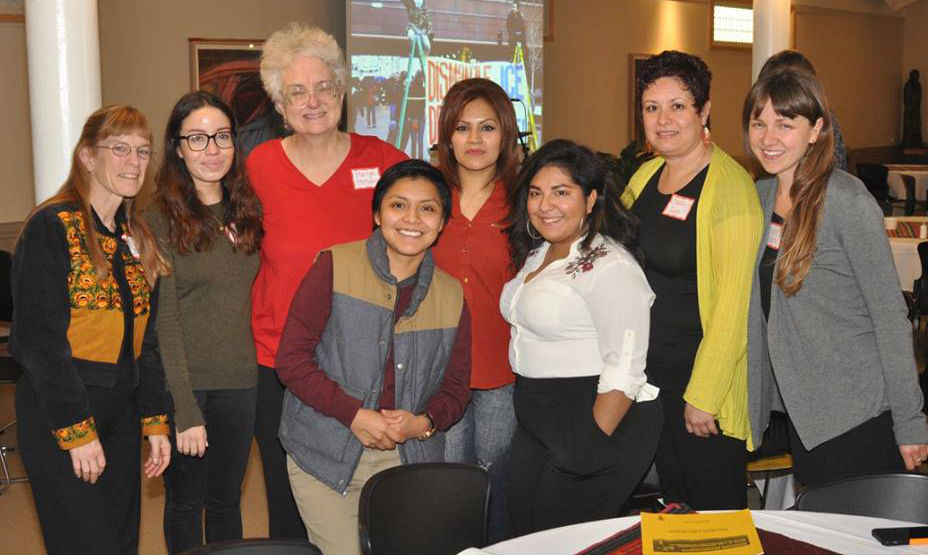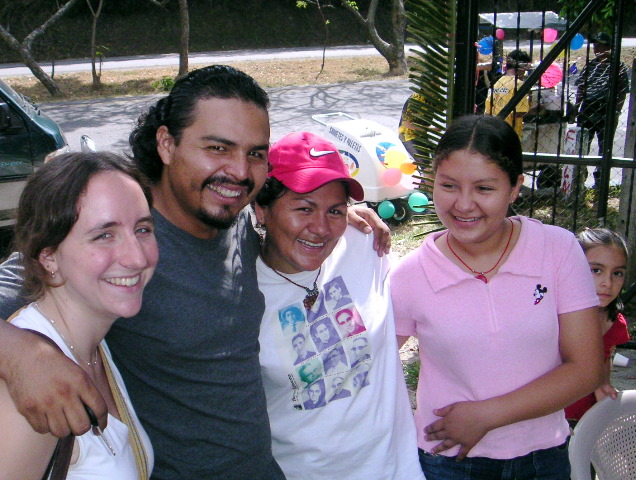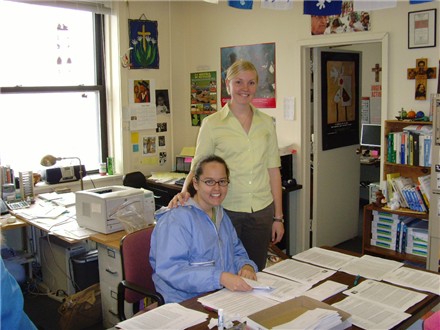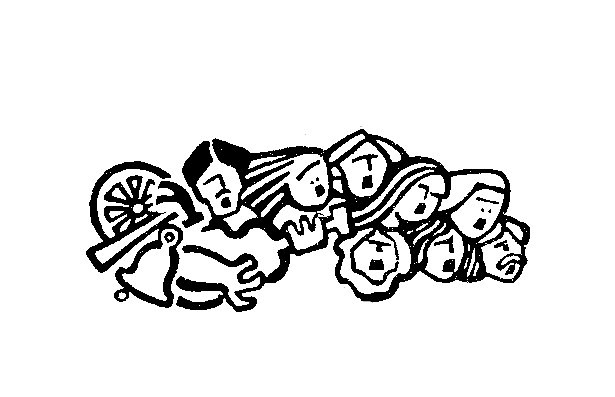Margot Worfolk has committed her life to working for peace with justice for all God’s children, especially those who are left out and pushed out by unjust political and economic systems. She first became active with CRLN in 2000 by participating in a delegation to El Salvador, marking the 20th anniversary of the assassination of Monseñor Oscar Romero. There, she fell in love with the courageous Salvadoran people and their struggle for justice, and she also fell in love with Joe Houston. On a later delegation, Margot and Joe were married on a beach in El Salvador! Together Margot and Joe continued to support the work of CRLN by participating in delegations to El Salvador and Cuba, the annual vigils calling for the closing of the U.S. Army’s School of the Americas, and public policy delegations to Washington DC. On one of the DC delegations, Margot met with Republican Congresswoman Judy Biggert, who became convinced to co-sponsor legislation calling for the de-funding of the SOA. Margot was an active board member of CRLN for many years. She represented CRLN at literature tables at events, called members, and invited tables of friends to CRLN events. Staff frequently sought out Margot for her ability to support staff transition planning. Margot had many leadership roles on the CRLN Board of Directors, including serving as Chair during the search process for CRLN’s next director. Under her wise and thoughtful leadership, CRLN became stronger and more effective in its mission to promote sustainable economies, just relationships, and human dignity.
Margot Worfolk ha dedicado su vida a trabajar por la paz con base en la justicia para todos los hijos de Dios, especialmente para aquellos que son excluidos o expulsados por sistemas políticos y económicos injustos. Se unió a CRLN en el 2000 para participar en una delegación a El Salvador, durante el vigesimo aniversario del asesinato del Monseñor Oscar Romero. Allí se enamoró del valiente pueblo salvadoreño y su lucha por la justicia, y también se enamoró de Joe Houston. ¡En una delegación posterior, Margot y Joe se casaron en una playa de El Salvador! Juntos, Margot y Joe continuaron apoyando el trabajo de CRLN al participar en delegaciones a El Salvador y Cuba, las vigilias anuales por el cierre de la Escuela de las Américas del Ejército de los EE. UU. y delegaciones de incidencia en Washington D.C. En una de las delegaciones a la capital, Margot se reunió con la congresista republicana Judy Biggert, a quien se convenció de copatrocinar una medida que buscaba desfinanciar la Escuela de las Américas. Margot fue miembro de la junta directiva de CRLN durante muchos años. Representó a CRLN en mesas informativas en eventos, llamó a miembros e invitó a sus amigos a eventos de CRLN. A menudo, el personal buscaba a Margot por su capacidad para apoyar la planificación de la transición del personal. Margot tuvo muchos roles de liderazgo en la Junta Directiva de CRLN, de la cual fue presidente durante el proceso de búsqueda de la actual directora de CRLN. Bajo su liderazgo sabio y reflexivo, CRLN se fortaleció para ser mas eficaz en su misión de promover economías sostenibles, relaciones justas y la dignidad humana.



 Escrito por Celeste Larkin, Coordinadora de Política Pública de CRLN, Aug de 2012 – Dic de 2016: Los últimos cuatro años y medio en CRLN me han dado una experiencia profunda y un sentido de humildad mientras aprendía, luchaba, y abogaba al lado de una bella comunidad que imagina un mundo donde los derechos humanos tienen más valor que el beneficio privado—y, por eso, estoy profundamente agradecida. Estaré dejando mi posición en CRLN al final de este mes y tomaré conmigo esta visión y todo lo que aprendí del equipo de CRLN, de nuestra junta directiva, de nuestrxs miembrxs, y—lo más importante—de la personas indocumentadas y organizadores de América Latina luchando por sus derechos, sus vidas y sus tierras.
Escrito por Celeste Larkin, Coordinadora de Política Pública de CRLN, Aug de 2012 – Dic de 2016: Los últimos cuatro años y medio en CRLN me han dado una experiencia profunda y un sentido de humildad mientras aprendía, luchaba, y abogaba al lado de una bella comunidad que imagina un mundo donde los derechos humanos tienen más valor que el beneficio privado—y, por eso, estoy profundamente agradecida. Estaré dejando mi posición en CRLN al final de este mes y tomaré conmigo esta visión y todo lo que aprendí del equipo de CRLN, de nuestra junta directiva, de nuestrxs miembrxs, y—lo más importante—de la personas indocumentadas y organizadores de América Latina luchando por sus derechos, sus vidas y sus tierras.

